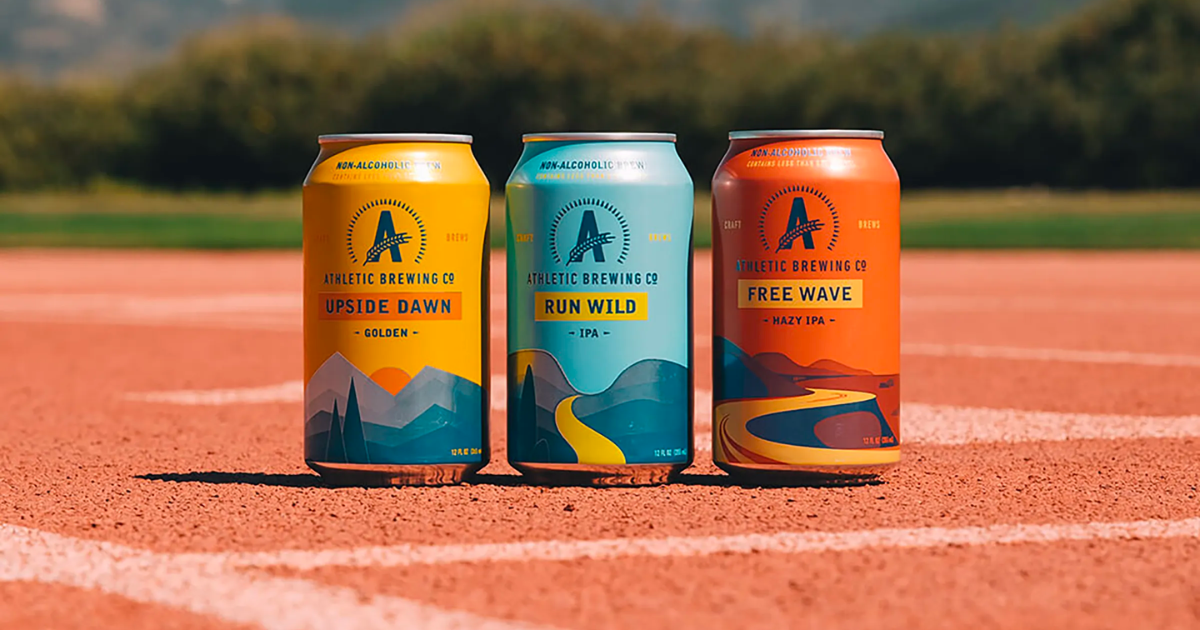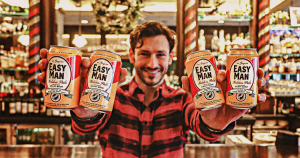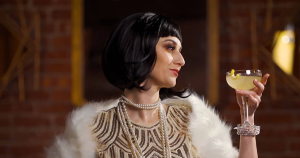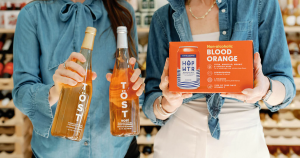As the popularity of non-alcoholic beers surges, it’s worth considering how we got here and where we’re going. Several brands, both established and new, are driving this revolution. Let’s explore who’s behind the non-alcoholic beer renaissance, from the pioneering O’Doul’s to the popular craft brands like Athletic.
O’Doul’s: The Pioneer
Established in 1990 by Anheuser-Busch, O’Doul’s was one of the first major non-alcoholic beer brands to hit the US market. Recognizing a niche audience that wanted the taste of beer without the alcohol, O’Doul’s quickly became synonymous with non-alcoholic brews. Although it faced its share of criticisms in its early days, particularly concerning taste, it paved the way for the future of the market and remains the most recognizable name in non-alc. Per a recent consumer trends survey from The New Consumer and Coefficient Capital, O’Doul’s leads in non-alc familiarity with 35% of US consumers familiar with the brand. That’s over 3X the familiarity of second and third place Recess and Athletic Brewing Co.1
Athletic Brewing Co.: The Craft Innovator
Fast forward to today, and brands like Athletic are elevating the non-alcoholic beer scene. No discussion of modern non-alc beers would be complete without mentioning Athletic. Founded in 2017, they offer a broad range of craft non-alcoholic beers, from IPAs to stouts. Their ethos focuses on high-quality ingredients and innovative brewing techniques. The brand has garnered acclaim for beers that rival their alcoholic counterparts in flavor, aroma, and depth, proving that non-alcoholic doesn’t mean tasteless.
Heineken 0.0: The Global Giant Adapts
Even international heavyweights have joined the movement. Heineken 0.0, introduced in 2017, marked the brand’s foray into alcohol-free beer. With a balanced flavor profile and a promise of only 69 calories per serving, it’s an attractive proposition for fans of the original Dutch pale lager who prefer less alcohol. Like Guinness 0.0, its big budget marketing campaigns at sporting events have showcased the freedom of enjoying beer moments without the alcoholic side effects.
WellBeing Brewing: The Wellness-Focused Brew
The impact of health and wellness on the non-alcoholic beer market is evident in brands like WellBeing Brewing. Their brews promise not only zero alcohol but also additional health benefits due to the use of adaptogenic herbs and antioxidants in their beers.
Other Rising Stars
The space is booming with innovators. Brands like Partake Brewing, Bravus Brewing, Visitor, and BrewDog’s AF line are each carving out their niches, whether it’s through ultra-low calorie beers, rich and complex flavor profiles, or sustainability-driven initiatives.
With our roots in the New York non-alc scene, we’re partial to Al’s, Atmosphere, Brooklyn Brewery, and other great New York based non-alc beer brands.
Broader Industry Context
After experiencing rapid growth in the first 15 years of the 21st century, craft beer growth has slowed more recently as the market has become saturated and consumer demand has shifted to RTD cocktails and hard seltzers. Mid-year 2023 results indicate a slight US craft beer volume decline YOY from 2022 of -2%. However, over the same period, the number of active craft breweries net increased from 9,100 to 9,300.2
We at Dry Atlas expect the composition of both craft breweries and total beer volume to shift toward non-alc brews in the years to come. That will happen with the launch of new non-alc focused breweries and as existing alcoholic breweries adding non-alc options to their existing lines.
Similar to the recent consumer shift from alcoholic beers to hard seltzers, we also expect beer lovers to discover non-alcoholic sparkling hops waters like Hop Wtr as a refreshing beer-like non-alc drink option.
What’s Next?
The growth in the non-alcoholic beer sector is powered by more than just consumer demand for alcohol-free options. It’s a blend of innovation, a shift in societal norms, and the rise of brands willing to challenge the status quo. From the introduction of O’Doul’s to the craft quality of Athletic and others, the evolution is evident.
As more brewers big and small enter the fray, consumers can expect an even wider array of non-alcoholic choices. Whether driven by health concerns, personal choice, or curiosity, there’s a non-alcoholic beer out there to suit every palate. We owe that variety and quality to the pioneering brands that first believed in the potential of alcohol-free brews. Cheers to the next chapter of brewing innovation! 🍻
1 – https://www.coefficientcap.com/trends/
2 – https://www.beveragedaily.com/Article/2023/08/14/Optimism-and-challenges-for-US-craft-beer-market






